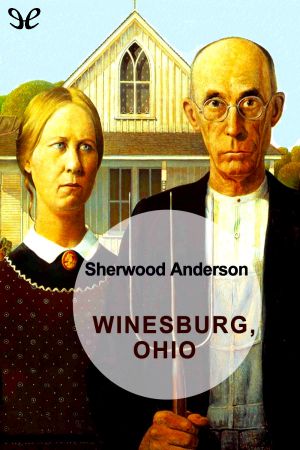Winesburg, Ohio

- Authors
- Anderson, Sherwood
- Publisher
- Library of America
- Tags
- novela , realista
- ISBN
- 9781598532043
- Date
- 2012-12-27T00:00:00+00:00
- Size
- 0.35 MB
- Lang
- es
Sherwood Anderson became a writer by a process of slow and irresistible rebellion. Breaking away from a two-decade career as advertising copywriter and small businessman, he reinvented himself as a modernist storyteller whose influence was foundational for modern American writing. Without Anderson’s example, the work of Hemingway, Faulkner, Wolfe, Steinbeck, McCullers, Mailer, and Kerouac is almost unthinkable. In mapping the America he knew widely and intimately—an America of small towns, big-city boarding houses, racetracks, isolated farms—he opened up new regions of America’s inner life in stories that remain astonishing for their stylistic freedom, their emotional candor and sexual frankness, and the exactness of their observation.
Anderson wrote in many genres, but it was in the short story that he found his ideal form. This volume collects for the first time all the books of stories he published in his lifetime— Winesburg, Ohio (1919), The Triumph of the Egg (1921), Horses and Men (1923), and Death in the Woods (1933)—along with a generous selection of stories left uncollected or unpublished at his death. Taken together they offer powerful evidence of Anderson’s extraordinary capacity to illuminate what is hidden under the surface of seemingly ordinary lives and to give expression to private delusions and desires.
When Winesburg, Ohio appeared, Hart Crane wrote: “America should read this book on her knees. It constitutes an important chapter in the Bible of her consciousness.” Weaving memories of his small-town youth into a series of interrelated stories, Anderson realized a stunning collective portrait, a haunting, expressionist set of variations on themes of isolation, frustration, and encroaching obsession. It remains a central masterwork of American literature.
Anderson’s later collections are no less imbued with his intuitive sense of the shapes of lives as felt from the inside. In such stories as “I Want to Know Why,” “Out of Nowhere into Nothing,” “The Man Who Became a Woman,” “An Ohio Pagan,” and “Brother Death,” he offers breathtaking insights, catching his characters unawares with deep empathy for their fragility and strangeness.